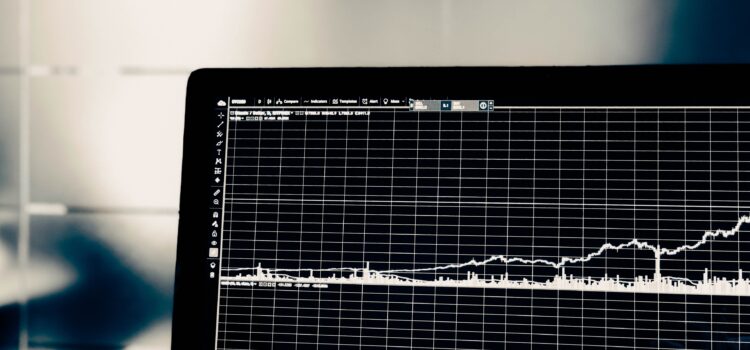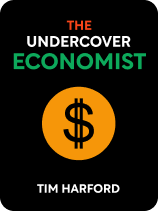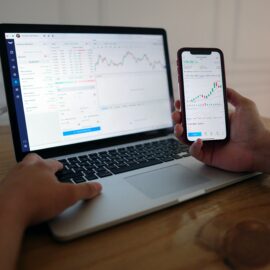

This article is an excerpt from the Shortform book guide to "The Undercover Economist" by Tim Harford. Shortform has the world's best summaries and analyses of books you should be reading.
Like this article? Sign up for a free trial here .
How do investors make money in the stock market? What factors do they use to base their investment decisions?
According to economist Tim Harford, stock market psychology is a nearly random walk that trends upwards. A report that says that stock prices will go up tomorrow, for example, will make stock prices go up today because people will buy them expecting them to go up tomorrow.
In this article, we’ll explain the basics of stock market trading, how prices are valued, and how investors decide what stocks to invest in.
Stock Market Investing Explained
It’s difficult to make more money than an average investor in the market. This is because, if you’re following the law (and not trading off of insider information), everyone is working with the same information.
Generally, as the world economy continues to grow, more people will put their money into the market. This leads to the upwards trend. It’s nearly random because people who are well informed about market conditions can, on aggregate, make a little bit more money than the average investor.
When you buy a stock, you’re buying a small part of the company. Theoretically, as a shareholder, you get back part of a company’s profits. In practice, though, shares are more about prospects than profits. When a company makes a profit, it generally reinvests that money into growing its business. Companies spend money on the development of a new product or advertising of an existing one. As a shareholder in a company, you’re betting that they’ll have more success with their reinvestments and general growth than the market assumes.
The stock market, then, is less about companies’ fundamentals and more about what other people think of a company—this is at the crux of stock market psychology. Two English investors once got into a discussion about the stock price of Grolsch beer. Grolsch had taken off in London, and it was served at every major pub in the city. Grolsch hadn’t found the same foothold in the rest of the country. However, a lot of big investors in England live in London. And many of the investors who live in London assumed, incorrectly, that Grolsch beer is popular everywhere. Thus, these investors thought that Grolsch stock was undervalued, bought a lot of the stock, and drove the price up.
Even if you know that Grolsch isn’t popular in the rest of the country, if you realize that London’s investors are about to buy a large quantity of Grolsch stock, you can get in at a lower price and make a lot of money. The fundamentals of the business catch up with the stock eventually. If Grolsch’s quarterly reports don’t show the growth that investors expect, they might start to sell-off. But if you’re playing the stock market, buying and selling companies fairly frequently, the fundamentals of a company don’t matter nearly as much as what other investors think about the quality of a company.
Running With the Crowd
As the above example showed, when playing in the stock economy it’s generally safest to run with the crowd. If a lot of people think a company is going to be successful, buy stock in it, because the stock price is likely to go up. This theory, though, also means that the stock market makes a lot of mistakes.
Often, investors can get an entire industry wrong. The dot com bubble of the early 2000s happened because investors started investing a lot of money in every internet company, no matter how unsuccessful they looked. At the height of the bubble, the market was pricing internet companies as if they would grow more quickly in the future than any group of companies ever.
Some technology companies, like Microsoft, did have good fundamentals and withstood the bubble better than many. But lots of internet companies didn’t have a clear growth plan, and so, after they couldn’t report growth, came crashing back down to earth. Investors ran with the crowd upwards until the argument for historic growth became untenable. Then, they ran with the crowd on the way down. This sort of groupthink can lead to wild swings in the market.

———End of Preview———
Like what you just read? Read the rest of the world's best book summary and analysis of Tim Harford's "The Undercover Economist" at Shortform .
Here's what you'll find in our full The Undercover Economist summary :
- How to think like an economist
- How to use principles like scarcity, price targeting, the stock market, and game theory to make better decisions every day
- Why the economy is mostly about people, not complex math, graphs, or jargon






